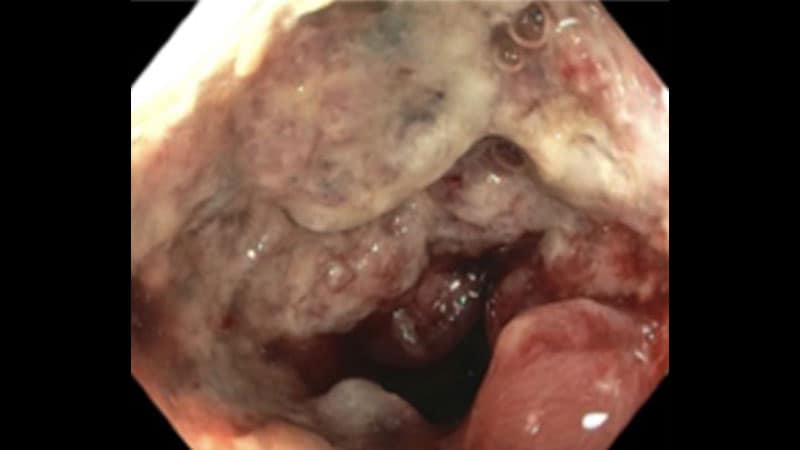Avoiding Sexual Intercourse Due to Rectal Pain - Page 4 - Medscape Reference

Because syphilis and LGV had been ruled out, doxycycline was discontinued and a regimen of valacyclovir 1 g every 8 hours for 3 weeks was started. The patient had a remarkable response to the antiviral agent. At his clinic follow-up 10 weeks after the completion of antiviral therapy, his symptoms had completely resolved. A sigmoidoscopy performed approximately 3 months after antiviral treatment ended revealed normal rectal mucosa and no evidence of masses. A biopsy performed at the time of the sigmoidoscopy did not show any histopathologic features consistent with HSV.
Several infectious diseases can cause rectal mass conditions in patients with HIV infection, including syphilis, LGV, CMV infection, and HHV-8 infection.[1,2,3] HHV-8 in the setting of HIV infection often becomes relevant in individuals with very low CD4 T-cell counts, in whom it manifests as Kaposi sarcoma. Human herpes virus 6 (HHV-6), another member of the herpes virus group, could also be relevant in immunocompromised hosts, although it appears to be more important in the transplant population, causing mostly encephalitis and pneumonitis. Noninfectious etiologies for rectal masses include lymphoma, squamous cell carcinoma of the rectum, contiguous malignant spread from nearby structures such as the prostate, and metastatic disease from distant sites.[4]
The patient in this case presented with symptoms of proctitis, which is not unusual in HIV-positive men who have sex with men (MSM). Among the many infectious causes of proctitis, gonorrhea, chlamydia, syphilis, and HSV infection are the most common.[5,6] HSV-1 is traditionally associated with oropharyngeal infection. More recently, however, HSV-1 has become an important cause of anogenital herpes in developed countries, which is probably related to increasing rates of orogenital sex practices, especially among MSM.[7]
Most persons with proctitis report a wide variety of symptoms, such as rectal bleeding, pain, tenesmus, and diarrhea or constipation. Those with HSV proctitis may have neurologic manifestations in the distribution of the sacral roots. Difficulty in initiating micturition, posterior thigh pain, paresthesia of the buttock or perineal region, and impotence are other neurologic symptoms that have been described by about 52% of men with HSV proctitis.[8] This patient's condition was diagnosed and appropriate treatment instituted before these complications developed.
Multiple techniques are available for the diagnosis of HSV infection, including viral culture, PCR, and immunofluorescence staining. Novel methods such as metagenomic next-generation sequencing (Karius test) or similar genetic-based tests are also potential options, although they are not widely available. Immunohistochemistry is a readily available, highly sensitive, and specific diagnostic option that is particularly beneficial for fastidious or noncultivable microorganisms. Based on the principle of antigen-antibody binding in biologic tissues, this technique is able to distinguish between numerous viruses (including HSV-1 and HSV-2).[9]
Comments
Post a Comment